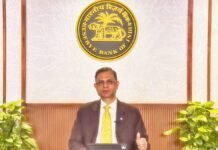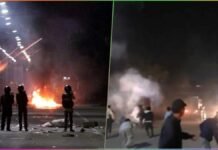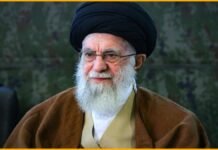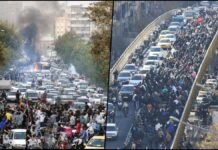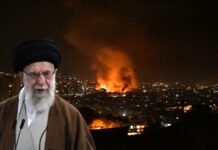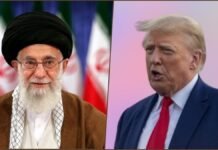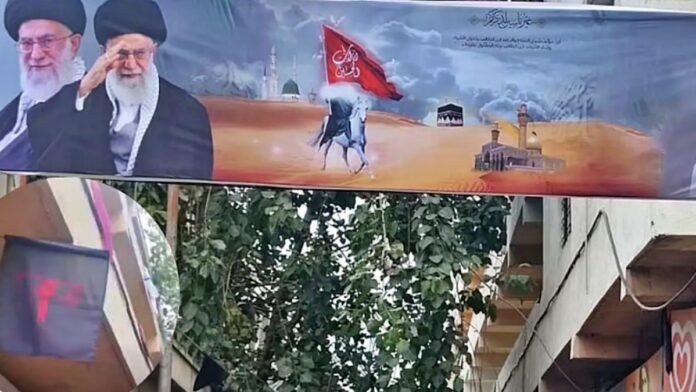
Key Points:
- Iranian flags and banners featuring Supreme Leader Ali Khamenei appeared near Pune’s Loni Kalbhor station, quickly removed by police.
- Similar posters and black flags were spotted at Bhopal railway station and an Iranian camp in Madhya Pradesh.
- Organizers clarify the displays were for a religious event, not linked to the Iran-Israel conflict.
- Local residents expressed concern; police are investigating and urging the public to avoid rumors and maintain peace.
- Shia Muslim community members, who follow Iranian traditions, have historically put up such posters, but this year saw a noticeable increase.
Pune: A surprising incident unfolded in Pune after Iranian flags and banners featuring images of Iran’s Supreme Leader Ali Khamenei were found displayed near the Loni Kalbhor railway station. The presence of foreign political symbols in a public space sparked immediate concern among locals, prompting a swift police response.
Authorities quickly removed the flags and banners and launched an investigation to determine the motive behind the display. The Pune police have appealed to citizens to remain calm, avoid spreading rumors, and maintain communal harmony. “We urge everyone not to pay heed to misunderstandings or misinformation. The situation is under control,” said a senior police official.
Religious Event, Not Political Statement, Say Organizers
Preliminary investigations indicate that the posters and flags were part of a religious event organized by members of the Shia Muslim community, who have deep cultural and spiritual ties to Iran. Organizers clarified that the display was not intended as a political statement or a reaction to the ongoing Iran-Israel conflict. “These banners are put up annually during our religious observances. This year, due to increased participation, the number was higher,” an organizer explained.
Despite these clarifications, some local residents expressed anger and confusion, fearing the display could be misinterpreted or escalate tensions in the community.
Similar Incidents Reported in Bhopal
A comparable situation was reported at Bhopal railway station in Madhya Pradesh, where posters with images of Khamenei and other Iranian leaders, along with black flags, were seen near platform number 6 and at an Iranian camp. In several instances, India’s national flag was displayed alongside the Iranian banners, further fueling public curiosity and concern.
Community members involved in the displays reiterated that the practice is a long-standing tradition among Shia Muslims in India, reflecting their religious identity and not a political agenda. However, they acknowledged that the ongoing Iran-Israel conflict may have led to heightened sensitivities and increased the number of such displays this year.
Police Response and Community Outreach
Police in both Pune and Bhopal have stepped up surveillance around sensitive locations and are working closely with community leaders to ensure peace. They have also launched awareness campaigns to dispel rumors and prevent any communal unrest.
“We are investigating the matter thoroughly. Citizens are requested to cooperate and not spread unverified information,” said a police spokesperson.
Context: Shia Traditions and Iranian Influence
The Shia Muslim community in India, particularly those with cultural ties to Iran, often organizes religious events and displays symbols associated with Iranian leaders, especially during significant religious months. Such practices are generally peaceful and have been part of the community’s tradition for years.
Looking Ahead
Authorities are monitoring the situation closely and have assured the public that there is no threat to law and order. The incident highlights the importance of cultural sensitivity and clear communication in a diverse society like India, especially during times of international tension.













